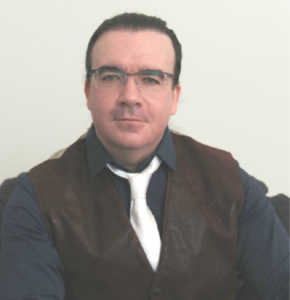Solomon creates company to verify Indigenous digital identities

By Sam Laskaris
TORONTO – Chad Solomon is taking a stand against fraudulent Indigenous identity.
Solomon, a member of Henvey Inlet First Nation, is the founder of a new company called Debwewin, which is the Anishinaabe Grandfather Teaching and word for ‘truth’. Another meaning for Debwewin is ‘to speak from the heart.’
Debwewin is a platform that will help organizations and governments authenticate Indigenous digital identity.
Solomon said fraudulent Indigenous identity has been a concern for quite some time. And he provided numerous examples.
For starters, he mentioned writer Joseph Boyden and actor Michelle Latimer, who have had their Indigenous claims questioned by many. Solomon also pointed to several teaching professionals from Queen’s University in Kingston who were determined to have falsely claimed Indigenous identity.
Solomon also referenced a Manitoba politician who claimed to be Métis and mentioned a pair of sisters who claimed to be Inuit and were awarded scholarship funds because of their claims.
“There have been challenges in all three sectors – First Nations, Métis, and Inuit – that have come to light in the last couple of years,” Solomon said. “This has been an ongoing problem for a number of years. There have been high-profile cases in the media in the last 10 years.”
Solomon said there are various funds across Canada that are designed for Indigenous peoples in the arts, education, or in various jobs. Problems are obviously created when individuals who claim to be Indigenous but are actually not end up receiving funding that could have gone to other deserving Indigenous candidates.
“This is why this service is getting more and more needed,” Solomon said.
Indigenous Tourism Ontario (ITO), which has about 600 members, is Debwewin’s first client. Solomon will determine the Indigenous authenticity of all of ITO’s members.
“It is a line by line experience,” Solomon said.
Solomon will work with Indigenous communities. He will check their registries to ensure that those who say are from a particular Indigenous community, indeed are.
“Our services are specifically designed for individuals,” Solomon said.
Solomon added even some individuals who claim to be Indigenous and have status cards as their ‘proof’, are not necessarily Indigenous. That’s why a more detailed look into one’s identity is required.
“Status cards can be faked in what they look like,” Solomon said. “I’ve heard stories about people stealing materials to make status cards.”
Once Debwewin completes its verification work, information will be encrypted and stored. Only a client with the proper decryption keys will be able to access and read findings.
Though ITO is currently Debwewin’s only client, Solomon said that will change in the near future.
“We have a couple of other pending contracts,” he said, adding an announcement of another client is very imminent. “They are in the fields of health, education and finance.”
Solomon said the verification fees he will charge will depend on the scope of work he is required to do.
More information on the platform is available at the website debwewin.com
Solomon added software is currently being developed to include verifying Indigenous businesses, noting that identifying the authenticity of Indigenous businesses is also necessary since they are able to benefit from procurement contracts designed specifically for Indigenous companies.
Solomon is hoping the software to determine the authenticity of Indigenous businesses will be ready to be rolled out by this June or July.
Solomon is also spearheading a process that will develop a solution to simplify sales tax reporting for businesses serving Indigenous people with status cards. This process will help ensure compliance for digital sales transactions both on and off reserve.

